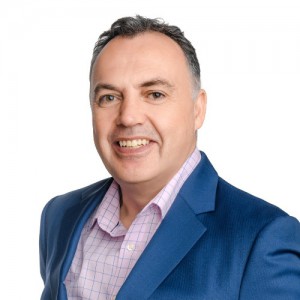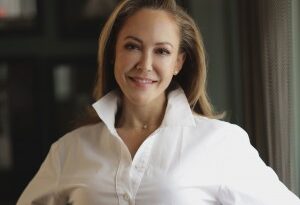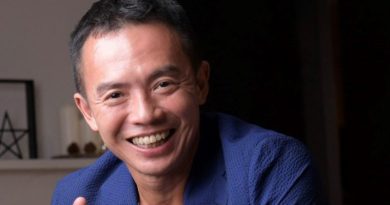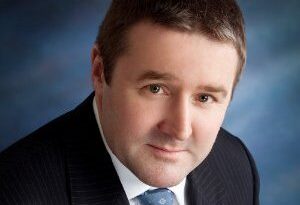Interview: Martin O’Regan of Singapore Fund Directors Association
Martin O’Regan of Solas Fiduciary Services was recently announced as the inaugural Chairman of the newly established Singapore Fund Directors Association (SFDA). HFC’s Stefan Nilsson decided to check in with Martin to find out more about SFDA.
As the alternative investment industry in the Asia-Pacific region matures, independent fund directors have become crucial as part of an institutional-quality set-up required by sophisticated investors. Is this why the SFDA has now been launched?
With the launch of VCC in Singapore and OFC/LPF in Hong Kong, we are seeing a trend towards onshorisation of fund structures in Asia. That coupled with the increased regulation in Cayman and other jurisdictions, I felt it was an opportune time to have a body to represent fund directors. The Singapore Fund Directors Association (SFDA) is an industry-driven initiative established to create and support an ecosystem within Singapore’s financial industry for fund directors. The SFDA is the fund director’s destination where they will be part of an ecosystem and community peopled by thought leaders, experts and service providers in the fund investment sector from Singapore and other countries. Singapore remains on track to be the financial hub of choice in Asia. The SFDA will augment this position with a membership of fund directors based in Singapore and the region.
I think you are an obvious choice as the inaugural Chairman of SFDA. You are a seasoned professional with international experience from major finance houses and now leading your own world-class firm. But SFDA is not a one-man show. Who else is in SFDA’s leadership?
With over 25 years of industry experience each, I have assembled a strong committee, consisting of myself, Robert Grome, Hugh Thompson and Soek Khim Chang. Robert was previously Asia Pacific Leader of the PwC Asset Management Industry Group until 2014 and since then has been serving large fund boards in Asia in different asset classes. Hugh is the Global Head of the Maples Group’s fiduciary services business. Having worked in banking and fiduciary services, Hugh has extensive experience of a wide range of financial products and offshore financing vehicles. He has been involved in the closing and subsequent administration of numerous offshore structures including securitisations, CLOs, trusts, hedge funds, asset finance and private equity funds. Khim’s previous role, spanning over 20 years, was Head of Dealing at a large Singapore based fund manager. She managed executions across 25 countries with an AUM of USD4bn. For myself after a long career globally in fund administration, I have been a full-time independent director for the last seven years. SFDA will develop subgroups and working groups to promote and tackle industry issues and work with regulatory authorities on governance initiatives. SFDA will be reaching out to the fund community to encourage members to join.
How will SFDA support the recruitment and development of new entrants to the fund industry in Singapore?
The SFDA intends to support independent directors in Singapore by diversifying and strengthening the development of talent in the financial services sector. We will do this by providing a platform for personal development, exchange of information and learning and building a network for their members. One of the key areas will be education and knowledge. We will facilitate this by authorising and organising high-standard continuing professional development programmes for fund directors and upgrade training for potential directors; developing and promulgating among members the standards, rules, disciplines and guidelines regarding fund directors’ conduct, integrity, and responsibilities; establishing a system of accreditation for directors; keeping abreast of world trends in corporate governance as well as fund directors’ practices; and providing members with value-added services, benefits and regular activities to facilitate networking opportunities.
Are the days of non-exec board directors in name only over? Will we now see boards becoming more professional by having fewer “yes-men” and more independent professionals asking the appropriate questions at the right time?
In the past, independent directors played a passive role. Now with regulators putting more stringent laws, proper governance is mandatory. Hence the role that Independent directors play is vital and diverse. Independent directors provide an oversight function for investors over the fund manager and other service providers to the fund. They act as agents for fund investors. They bring impartiality and experience to a fund’s board and its oversight of the fund’s affairs and activities. The comfort of independence for investors is that you are acting on their behalf; transparency and transparent reporting are what regulators look at. We can see a global trend of more regulation, transparency and independent reporting required for regulated funds. In my opinion, if you want to play in the mainstream going forward, “yes-men” will not work.
What about the issues with directors for hire that sit on too many boards? Should investors worry when they find out that the fund, they invest in has a director who sits on another 100 fund boards or more? Is that a major issue for our industry?
Again, as mentioned earlier, historically independent directors in the offshore space were low touch, passive roles with little or no regulation. In Dublin and Luxembourg fund directors are now regulated and the number of mandates a director is allowed to onboard is restricted based on either the number of clients or the number of mandates a director is allowed hold. That trend is being looked at in Cayman, Singapore and Hong Kong and in the medium term, those jurisdictions will also regulate independent directors that sit on regulated funds. The concept of jumbo directors sets the wrong tone in the industry and the days of holdings 100+ mandates will be over within the next 3-5 years in most if not all jurisdictions.
How do you think the ongoing global pandemic has impacted how fund directors work and how investors are able to do due diligence on directors and funds?
As new regulations and shifting market trends envelope us due to the pandemic, the best way forward is to be prepared. A fund director needs to dedicate significant time and effort on setting up software, cloud platforms and implement an extensive cyber monitoring programme. You need to get the right balance of working in the office and remotely, regularly testing of BCP, cyber monitoring and proper infrastructure will pay off in the end. Directors will need to spend time beefing up their legal documents, policies and procedures, manuals, etc. as in a post COVID environment due diligence on those features will be extensive.
SFDA is Singapore specific. Have you had any thoughts about developing this into a regional power across Asia-Pacific?
While we initially have set up in Singapore, a focus for SFDA is local and international relations to augment a major consultative status and a voice from the fund’s community to government, regulatory authorities and service providers on corporate governance issues; to be recognised as the authoritative advocate on behalf of fund directors in Singapore and beyond; to work in close association with other professional bodies for the betterment of Singapore; to become an essential partner to equivalent associations in other countries in the global promotion of good corporate governance; to integrate and communicate with the various sectors of the public to achieve an awareness of the SFDA’s roles, mutual understanding, and acceptance.
For more information about the SFDA, please visit: www.sfda.com.sg









